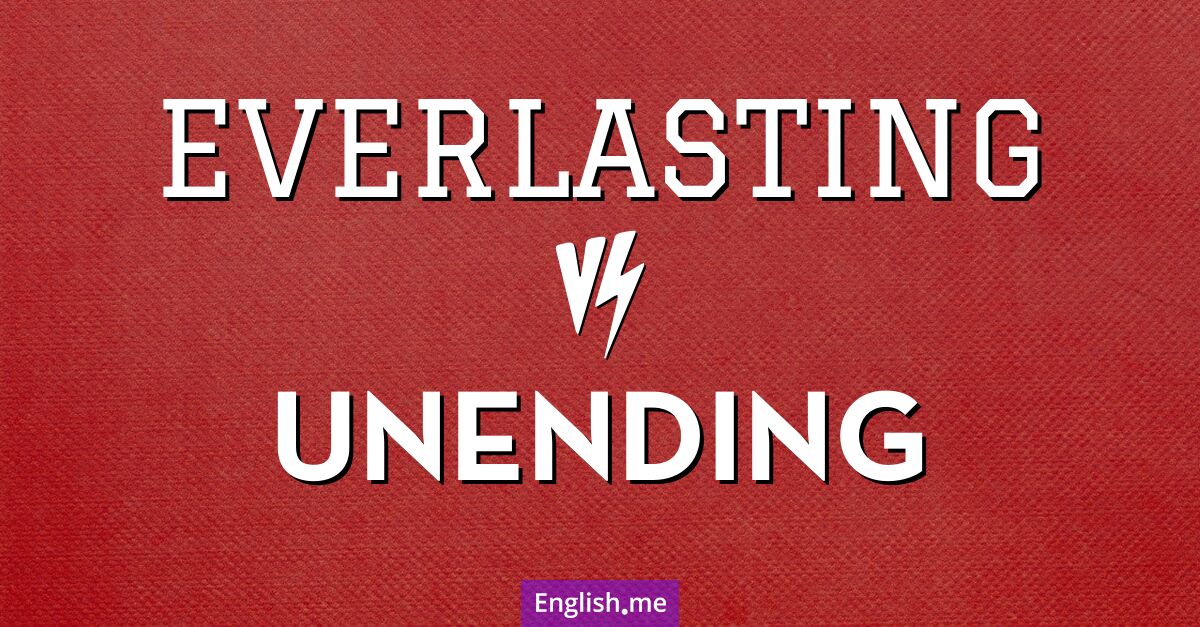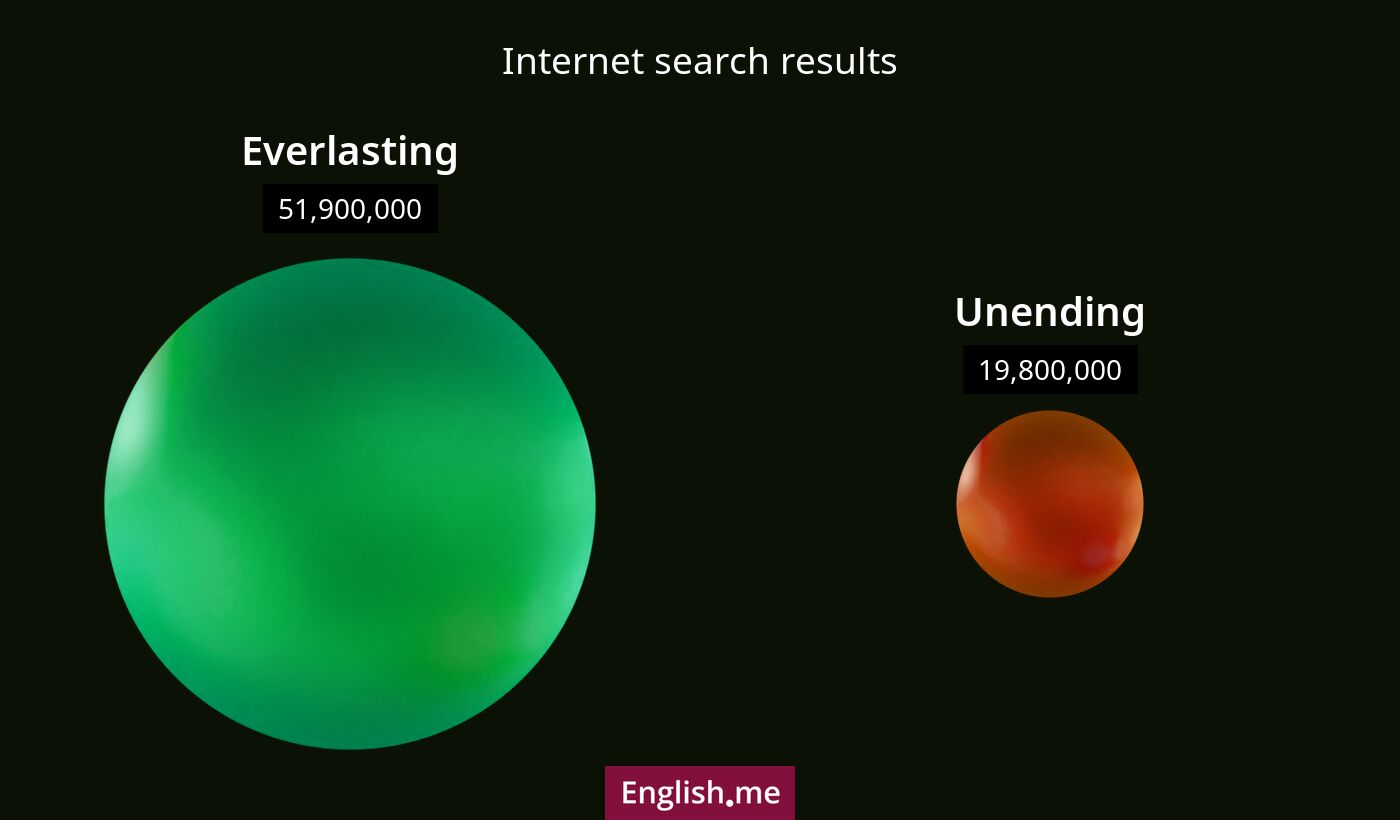"Everlasting" vs "unending": shades of forever
Reviewed and edited by  Lloyd Cooper 25/11/2024, 05:10
Lloyd Cooper 25/11/2024, 05:10
English.me team member

 What is similar?
What is similar?
Both "everlasting" and "unending" describe something that continues indefinitely without end.
 What is different?
What is different?
"Everlasting" often conveys a sense of permanence or eternity with a positive or profound connotation, while "unending" emphasizes continuous duration without a defined endpoint and can sometimes have a neutral or negative connotation.
 Which one is more common?
Which one is more common?

 Examples of usage
Examples of usage
Everlasting- Their love was an everlasting bond that nothing could break.
- The mountains stood as an everlasting testament to nature's grandeur.
- The unending rain kept the streets flooded for days.
- She grew weary of the unending debates that led nowhere.

 English
English español
español française
française italiano
italiano deutsche
deutsche 日本語
日本語 polski
polski česky
česky svenska
svenska Türkçe
Türkçe Nederlands
Nederlands